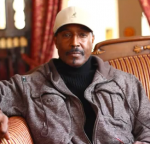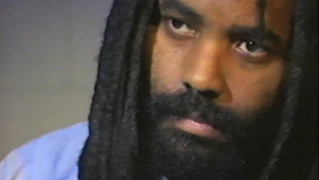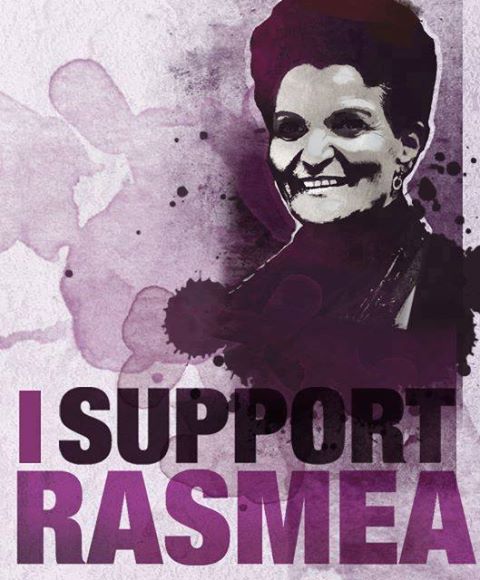Conclusion: Shakur or, a Primer on the Difference between Morality and Ethics
for LC and TD
All that you meet are thieves: to Athens go,
Break open shops; nothing can you steal,
But thieves do lose it
— William Shakespeare, Timon of Athens (Act 4, Scene 3)
The underground railroad on an uprise
This time the truth’s gettin told, heard enough lies
I told em fight back, attack on society
If this is violence, then violent’s what I gotta be
— Tupac Shakur, “Violent”
“Nobody in the world, nobody in history, has ever gotten their freedom by appealing to the moral sense of the people who were oppressing them.”
–Assata Shakur, Assata: An Autobiography (139)
As we conclude our series, “A Celebration of Assata Shakur and the Black Radical Tradition,” I think it is important to consider the figure of the revolutionary. Too much of what we say about Assata Shakur and other Black radicals doesn’t understand that they are necessarily ethical figures. Instead, the moral standards of today judge many such figures as “violent” or “terrorist.”
And people seem to be okay with that vast chasm of cognitive dissonance, say, between a country that touts freedom yet imprisons far and away more of its population than any other country, that invades and cluster bombs nations that engage in torture but itself engages in waterboarding and whatever else goes on at Guantanamo and locks up its own citizens in such horrendous conditions that merely being in prison in California constitutes “cruel and unusual punishment” (a violation of the Eighth Amendment to the U.S. constitution). And yet, although increasing numbers of folks are inclined to call out the contradictions, few people are courageous enough to once and for all call bullshit on the genocidal slave state that America is, and most are unable to support the political prisoners and revolutionary figures who have done so.
It occurs to me today on Assata’s birthday–the day after my friends got arrested in Oakland for protesting the still-unpunished killing of Trayvon Martin, and three days after I went three hours south of here to support the California Prison Hunger Strikers– that a whole lot of people just don’t understand the difference between morality and ethics. That is, people don’t get why we need revolutionaries who aren’t just calling themselves “revolutionary” while going through the motions but who are actively performing revolution, i.e., opposing state and civil society, even against the moral rules of an unethical society, with the goal of ending a racist social order. So the news regards smashing the windows of restaurants serving rich folks that had the audacity to stay open during a massive nearby protest as immoral. Well, it may well be. But it’s not unethical.
So…Wait, What’s the Difference?
If you take most or all of your sense of right and wrong from adhering to what’s prescribed or repressing what is proscribed in a book, you’re guided by a morality. If you have to figure it out situationally, guided by some very basic principles (some of which might come from a book, like the Quran or Bible or Bhagavad Gita or even John Coltrane’s song “A Love Supreme”) and contingent on the tensions, ambiguities, and changes of life in the world, you’re guided by an ethics.
The ethical life is the harder path, but it is also the more potentially rewarding. And it is the only way for the revolutionary. The revolutionary is called to create a new way of being and living together in the world. She has to build that new way out of an old world that refuses to let go of its rigid institutional adherences, inheritances, and afterlives, oppressive and genocidal as they might well be.
We have to question the ethical horizons of our politics. If you think all Black people are to be trusted and all white people distrusted, yours is a politics of morality, even if you anticipate something like revolution might come out of it. If you think the truth can be written and literally followed, your compass is a moral one, whether your guide is a 3,000-year-old sacred text or a 50-year-old legal code.
Morality is the normative guide that assumes the world is sufficient as it is to say what is right and what is wrong. Ethics allows us to accept that the world isn’t as it ought to be and perhaps never will be. But it also demands that we act to make it closer to better, like the asymptote of a hyperbola in mathematics that gets closer to the x-axis but will never in all of time touch that axis.
Morality is quite often perverse because it is accountable to the set of relations that bind a society together. It serves the world as the world is, and is invested in keeping it that way. So the United States, for instance, as a set of relations, produces its own morality encoded as culture, having largely to do with respect of “space,” not being an “enabler,” and, especially, the hoarding of private property. All that is moral. Meanwhile, America’s people starve and get evicted left and right and are so overworked and sleep deprived that they can’t drive or fly right and have the worst medical care and tolerate really slow internet connections and live in conditions comparable to those of the poorest nations in the world–all of which, happens in the richest nation in the world. It is unethical. Fucked up. Yet, perfectly moral.
Ethics can be perverse when it condenses into a morality, a set of hard and fast rules. But ethics is beyond the rules. It is accountable to something beyond the narrow now of the status quo.
On Fire
So, in Sophocles’ ancient play Antigone, the title character was ethical because she scorned Creon, her uncle and representative of the state, to bury her brother rather than leave his bones to be picked. Mamie Till (with the help of the Black underground that secreted her son Emmett’s body out of Money, Mississippi), flouted this society’s respect for the decomposed body because Mamie Till was possessed of an insistent demand that “the world… see what they did to my boy.” Trayvon’s parents had to let the world see what George Zimmerman and ALEC did to their boy. Some of my friends have been arrested and charged with disrespecting the property relation of a country that considers George Zimmerman not guilty for taking from a Black boy the only thing he might have called his own: a future. Maggy Delvaux-Mufu lit herself on fire and walked through a public area of Luxembourg because the world had to see what European racism was doing to her and other Black people.
I wish I could have spoken to Maggy before she did what she did. I wish I could have introduced her to Assata: An Autobiography. An ethical Luxembourg would be a Luxembourg on fire. Instead, I march in the streets and shout and write like I am on fire and pray for favorable winds.
I do not oppose America because I hate a nation founded on slavery and genocide. I oppose America because if I am a moral citizen within it, my actions– paying taxes, being a productive worker, being an active consumer– will uncritically murder the slave boys and slave girls who harvest the cacao beans in Sierra Leone so that I can have a Twix bar and the slave men and women in Congo who harvest coltan so that my iPhone vibrates when you call it. America would be just another piece of land but for the relations that call it perfectly moral that I be able to eat my Twix bar while talking on my iPhone and would hold any of those slave boys and slave girls and slave men and slave women immoral if they could find a way over here and kill me before I indirectly–but no less surely– kill them by taking that next bite or texting that last 😉
 There is no way to understand ethical figures like Assata Shakur through a moral framework. But representatives of the organs of the state– its news media and commentators especially– get fired if they speak the ethical truth. They can only speak in moral terms. And that is the wrong lens through which to view someone like Assata Shakur, a person created out of genocide, in response to genocide. She’s an ethical figure. A revolutionary.
There is no way to understand ethical figures like Assata Shakur through a moral framework. But representatives of the organs of the state– its news media and commentators especially– get fired if they speak the ethical truth. They can only speak in moral terms. And that is the wrong lens through which to view someone like Assata Shakur, a person created out of genocide, in response to genocide. She’s an ethical figure. A revolutionary.
Maybe there will always be tension between the revolutionary and the state. Or maybe a goal of ethics can be to create an ethical state, a stateless state.
I don’t know.
How Ethics Becomes Political
I only know that ethics, made active, becomes something like a higher order of politics than the bullshit election cycles chased from Iowa to South Carolina on MSNBC and FoxNews.
I only know that the only ethics I have seen lately have been exercised by those who have nothing to offer, yet somehow make each other rich. They disregard the morality of wealth that says people who don’t hoard resources that are there for the taking are at fault when they fall on hard times because they ought to have hoarded more.
I do not understand the rigid “rightness” of that world. I only understand the “madness” of those who risk the terror of the state’s prisons to demand that the world take notice of the murder of a little boy who was deemed a threat from his departure from the womb, or who climb fences and risk getting shot by prison guards to force the state to sound its alarms and admit that it is on the verge of losing control if 30 more people do the same thing, an alarm that lets the hunger striking prisoners know that somebody said “fuck you” to Corcoran on their behalf.
I do not understand the rigid rule that you don’t pick up a stranded person or help a friend back onto his feet who cannot even stand for long periods of time. No, in general, it’s, “You shouldn’t have let your car break down in West Oakland when you’re from Fremont,” or, “You can’t stand on your own two feet, you gotta go! Good luck and good riddance!” It’s not, “I can do what I can do, but as long as I have a home, you’ll have a home.”
And I do not understand the rigid rule that you have a moral right to make your money how you make it, serving a wealthy clientele of people who are gentrifying poor people into homelessness, and that nobody should interfere with you if you aren’t doing anything to them personally.
Fuck Personal Morality. Tell Me about the Ethics of the Structure.
So when the Flora restaurant in uptown Oakland calls for more police enforcement against protesters breaking its windows and say protesters attacked its personnel (and, in point of fact, my sources inform me that the member of the wait staff put hands on the protester first before the protester hit him back)– they focus on the interpersonal wrong and get all kinds of news coverage. But what about the structural wrong of their proudly being part of the gentrification of Oakland that victimizes the kids who end up smashing their windows (never mind Flora’s stupidity in trying to stay open and cater to the privilege of rich white people while a major protest against the privilege of rich white people happens right outside)?
In fact, when does gentrification ever get to be the moral responsibility of the individual gentrifiers themselves? The “moral” fault is always placed on the protester who says, “Gentrifiers, get out the hood!” or “My hammer through your window might not stop you but it will remind you that you are a settler, no matter how settled you might feel.” Instead, it’s, Mayor Jean Quan suddenly calling for people to “come together” or it’s, “March nicely in the streets with nicely formatted placards, write petitions, and get to work on time or you’re fired. And maybe if you save/hoard enough, you, too, can own one of these posh businesses and gentrify little Black children way out to Suisun City and Vallejo.” It’s not, “By any means necessary, I will resist your plans to make a neighborhood called ‘NOBE’ for largely rich white people (and a few Black people, too!) out of the Black Panthers’ old neighborhood and leave the leftover hinterlands to the folks who live here now” or “I don’t know if I will ever stop marching and come back to work while this country accepts the murder of a Black boy as ‘justice’ and bombs thousands of little boys and girls across the world with deadly toy airplanes and calls itself ‘fighting terrorism.'”
Perverse Moralities, Righteous Ethics
In Nazi Germany, Aryan Germans were morally obligated to report Jews and other “inferior” or “degenerate” people to the authorities if they did not wear things that identified them as such or if they were in hiding after the deportations began. Doctors were morally obligated to euthanize people with disabilities or sterilize those with “bad” genes. The ethical path was the scarier one, the one that the Sophie Scholls and the Dietrich Bonhoeffers took in the face of a state that was itself terror, even if the state was moral on its own terms. The moral path was that of the countless parade of cowards who said that eugenics was “good for humanity” or, later, that they were “only following orders.”
So, when we are thinking about the present circumstance, how can we respect property in a slave society, a society that still makes substantial portions of its GDP from slave-made products or institutions made to maintain slavery in domestic prisons or elsewhere in the world? And, if we are property or property-in-waiting, how can we be morally bound to respect that property relation? We are not. We cannot be. We ought not be. Broken windows will apparently have to be the least of the costs (or perhaps “collateral damage”) that white privilege and power pay for Trayvon Martin and Aiyana Stanley-Jones and Rekia Boyd and Kenneth Chamberlain and Kathryn Johnston and #every28hours. Sorry, Flora. We are marching against privilege– the privilege of Zimmerman to kill Trayvon, the same privilege that you call on to keep serving rich clients when there is so much poverty and misery just outside your doors. And it might get messy. So you might wanna let the windows go, stop putting hands on protesters, and take your privileged clientele somewhere else. And leave some money behind for the people of west and east Oakland to start freedom schools for their children and high-quality health care for their elders.
To be ethical in an unethical world is always immoral according to the standards of that world. I don’t know. If you see ethics anywhere in this world that kills children wantonly through “stand your ground” laws and juvenile detention facilities and drone bombings and depleted uranium shell residue and forced sterilization of women who end up in prison– but denies women the right to end pregnancies in their own bodies, you are probably seeing the work of someone like Assata Shakur, whose name translates as “she who struggles, with thanks.” In the words of former political prisoner Dhoruba bin Wahad,
was there any moral equivalence between starting a bloody war by lying to the world and thereby causing the deaths of thousands and justifying the lies with the rhetoric of decency and humanity? Or was there a moral redemptive equivalent between security agents of apartheid who brutally tortured and murdered Steven Biko, and their apologies thirty years later before a “truth and reconciliation commission” as Winnie Mandela would have us believe, while descendants of
white settlers still control the land in South Africa even though Blacks are in political power and Racists Europeans still dominate the gold and diamond industries and call the shots? Or should the apologies of the Belgian, French, and American murderers of Patrice Lumumba who now enjoy their old age and write self-justifying memoirs while the Congo wallows in chaos and bloodshed because of their imperial machinations be accepted as true atonement? Or even closer to home, is there a moral equivalence between a government’s collusion with organize crime and right wing Asian cartels and paramilitaries to flood the African-American communities with drugs and then declare a war on drugs thereby incarcerating and killing thousands of Black youth?Lets not talk about moral and ethical atonement for heinous crimes – there is so much America needs to atone for that “clemency” is out of the question.
If you see any redeeming ethical content in such a world as America has made for Black people, I guess I’d say you had a good day. Don’t thank the police, though. They enforce the “moral” code. Instead thank a revolutionary. Shakur.








0 comments